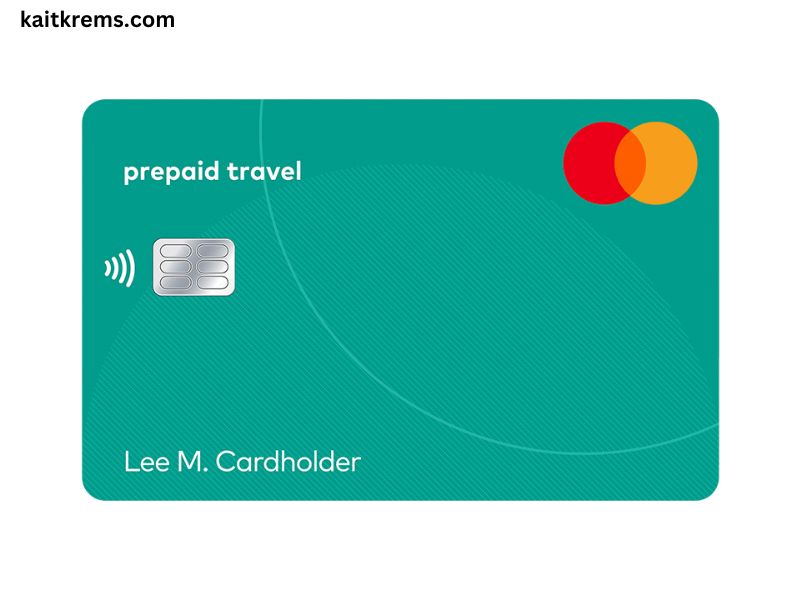Travel cards are essential tools for employees who travel for business purposes. However, there are circumstances under which an individual may be issued a restricted travel card. These restrictions can arise from various factors, ranging from policy violations to financial misconduct. This article explores the situations that lead to the issuance of restricted travel cards, their implications, and best practices for compliance.
What is a Restricted Travel Card?
A restricted travel card is a type of credit card issued by an organization that limits its usage to specific expenses or situations. This restriction is typically imposed due to previous misconduct, policy violations, or concerns about financial responsibility. Unlike standard travel cards that offer broad usage, restricted travel cards have limitations that prevent misuse and ensure adherence to company policies.
Situations Leading to the Issuance of Restricted Travel Cards
1. Policy Violations
One of the most common reasons an employee may receive a restricted travel card is due to violations of company travel policies. These policies often outline acceptable spending categories, limits on expenditures, and the need for prior approvals for certain purchases.
Examples of Policy Violations:
- Unauthorized Expenses: Employees who frequently charge non-allowable expenses (such as personal items or entertainment) to their travel cards may face restrictions.
- Failure to Submit Receipts: Organizations typically require receipts for all transactions. Failure to submit these may result in restricted usage.
- Exceeding Spending Limits: Regularly exceeding the predefined spending limits can prompt management to restrict card usage.
2. Fraudulent Activities
Instances of fraud, whether intentional or unintentional, can lead to the issuance of a restricted travel card. This can include misrepresentation of expenses, submitting fake receipts, or using the card for personal purchases.
Key Considerations:
- Intentional Misrepresentation: Employees found deliberately misrepresenting expenses may face severe penalties, including restricted travel privileges.
- Inadvertent Errors: Even unintentional mistakes can raise red flags. If an employee frequently submits claims with discrepancies, they may be put on a restricted travel card.
3. Financial Mismanagement
Financial responsibility is crucial for employees who manage corporate funds. An employee’s history of financial mismanagement can result in restricted travel card privileges.
Indicators of Financial Mismanagement:
- Late Payments or Defaults: Employees who frequently delay payments on their corporate card or default on obligations may be considered high-risk.
- High Debt Levels: If an employee consistently carries high debt on their corporate card, management may impose restrictions to mitigate risk.
4. Performance Issues
An employee’s overall job performance can also impact their eligibility for a travel card. Poor performance reviews, consistent failure to meet targets, or behavioral issues may lead management to restrict travel card access.
Performance-Related Factors:
- Lack of Accountability: Employees who fail to take responsibility for their actions, including spending, may be viewed as untrustworthy.
- Negative Impact on Team Dynamics: Employees whose behavior disrupts team collaboration may find their travel privileges curtailed.
5. Security Concerns
In some cases, security concerns can lead to restricted travel card issuance. If an employee’s behavior raises concerns about their integrity or security clearance, organizations may impose restrictions.
Examples of Security Concerns:
- Background Checks: An employee with a troubling history revealed through background checks may have their travel privileges limited.
- Suspicion of Misconduct: If there is suspicion regarding an employee’s potential misconduct or lack of compliance with security protocols, travel restrictions may be enacted.
6. Changes in Employment Status
Changes in an employee’s employment status can also lead to a restricted travel card. This might include transitioning from a full-time position to a part-time role or being placed on probation.
Situations Related to Employment Status:
- Probationary Periods: Employees in probationary periods may have limited access to resources, including travel cards.
- Restructuring or Layoffs: During organizational changes, access to travel resources might be reassessed based on the employee’s new role or status.
Implications of Receiving a Restricted Travel Card
The issuance of a restricted travel card can have several implications for both the employee and the organization:
For the Employee:
- Limited Travel Options: Employees may face restrictions on where and how they can travel for work, potentially affecting their job performance.
- Stigmatization: Being placed on a restricted travel card can be perceived as a lack of trust by management, impacting employee morale.
- Increased Scrutiny: Employees with restricted travel cards may find their expenses closely monitored, which can create additional pressure.
For the Organization:
- Risk Mitigation: Issuing restricted travel cards helps organizations mitigate risks associated with financial misconduct and policy violations.
- Encouraging Compliance: Restrictions can serve as a deterrent for non-compliance and encourage employees to adhere to policies.
- Resource Allocation: By restricting certain employees, organizations can better allocate resources to those with a proven track record of responsible spending.
Best Practices for Compliance
To avoid being issued a restricted travel card, employees should adhere to the following best practices:
1. Understand the Policies
Familiarize yourself with the organization’s travel policies, including acceptable expenses, spending limits, and the documentation required for reimbursement.
2. Maintain Accurate Records
Keep meticulous records of all travel-related expenses, including receipts and invoices, to ensure compliance and facilitate smooth reimbursements.
3. Seek Approval for Unusual Expenses
If an expense falls outside the norm, proactively seek approval from management before incurring the cost to avoid violations.
4. Monitor Spending Habits
Regularly review your spending habits and ensure you are staying within the established limits to prevent unintentional violations.
5. Communicate with Management
Maintain open communication with management regarding any challenges you face while traveling. If issues arise, addressing them promptly can help maintain trust.
Conclusion
The issuance of a restricted travel card is typically a response to various factors, including policy violations, fraudulent activities, financial mismanagement, performance issues, security concerns, and changes in employment status. Understanding these circumstances can help employees navigate the complexities of corporate travel and maintain their privileges.
By adhering to organizational policies, maintaining transparent communication, and demonstrating responsible spending, employees can minimize the risk of being placed on a restricted travel card. For organizations, implementing clear guidelines and monitoring compliance can foster a culture of accountability and trust, ultimately enhancing operational efficiency.






